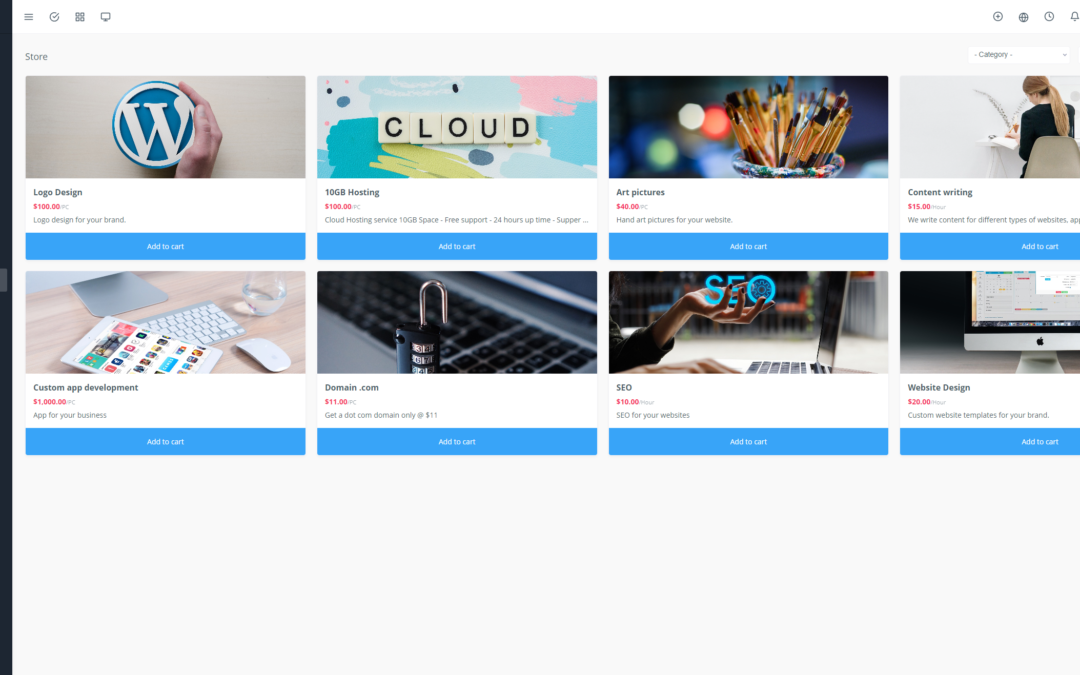Introduction:
Yoneos CRM is a powerful solution designed to help businesses improve their sales processes and maximize their results. By centralizing customer information, automating tasks, and providing visibility into performance, Yoneos CRM can help you achieve your sales goals and generate more revenue. 💸
But how do you measure the real impact of Yoneos CRM on your business? That’s where the concept of return on investment (ROI) comes into play.
Defining ROI:
Return on investment (ROI) represents the profit earned relative to the initial investment. In other words, it measures the profitability of your investment in Yoneos CRM. A positive ROI means Yoneos CRM is earning you more than it costs.
How Yoneos CRM Can Contribute to Improved Sales:
Better Contact and Opportunity Management: Yoneos CRM allows you to track customer interactions, manage sales opportunities, and maintain an overview of your prospects. 🤝
Automation of Repetitive Tasks: Automate tasks like reminders, follow-up emails, and reports, freeing up time for you to focus on more strategic activities. 🤖
Improved Internal Communication: Facilitate collaboration between sales and marketing teams and ensure a transparent flow of information. 💬
Performance Analysis and Progress Tracking: Access customized dashboards and reports to track key performance indicators (KPIs) and measure results. 📊
Measuring the ROI of Yoneos CRM:
To measure the ROI of Yoneos CRM, it’s important to track the performance of your sales process before and after implementing the solution. Here are some key metrics to consider:
1. Tracking Sales Performance:
Conversion Rate: Measure the percentage of leads that transform into customers. 📈
Revenue Generated: Calculate the revenue generated from sales made through Yoneos CRM. 💰
Average Sales Cycle Time: Analyze the time it takes to close a sale. ⏳
2. Costs Associated with Yoneos CRM:
Subscriptions: Monthly or annual cost of the Yoneos CRM subscription. 💲
Training: Cost of training employees to use Yoneos CRM. 📚
Resources: Cost of additional resources needed to implement Yoneos CRM (e.g., hardware). 💻
3. Calculating ROI:
ROI = (Revenue Generated – Costs Incurred) / Costs Incurred x 100
Example:
If the revenue generated through Yoneos CRM is $100,000 and the costs incurred are $10,000, then the ROI is 900%.
4. Identifying KPIs Related to Yoneos CRM:
Opportunities Generated: Number of new sales opportunities identified through Yoneos CRM. 💡
Opportunities Converted: Percentage of opportunities converted into sales. 🎉
Customer Satisfaction: Customer satisfaction rate after using Yoneos CRM. 😊
Customer Engagement: Number of interactions and communications with customers through Yoneos CRM. 💬
5. Data Analysis and Reporting:
Yoneos CRM offers analysis and reporting tools that allow you to track performance and identify trends. 📊 Use this data to:
Identify Growth Opportunities: Detect the most successful market segments and products. 🚀
Optimize Sales Processes: Identify weaknesses and improve workflows. ⚙️
Enhance Communication and Collaboration: Improve communication between teams and collaborative processes. 🤝
Conclusion and Recommendations:
The ROI of Yoneos CRM is a crucial indicator for measuring the impact of your investment. By tracking key KPIs, analyzing data, and optimizing your sales processes, you can maximize the ROI of your CRM and achieve your business goals. 🎉
Tips for Maximizing the ROI of Yoneos CRM:
Choose the Right Version of Yoneos CRM: Opt for the version that aligns with your needs and the size of your business.
Train Your Teams on Using Yoneos CRM: Ensure your teams are well-trained and comfortable using the solution.
Utilize Yoneos CRM Features to Their Full Potential: Explore all of Yoneos CRM’s features to optimize your sales processes.
Measure and Analyze Your Results:* Regularly track key KPIs and use the data to improve your performance.
Don’t wait, harness the power of Yoneos CRM to boost your sales and maximize your ROI! 🚀

